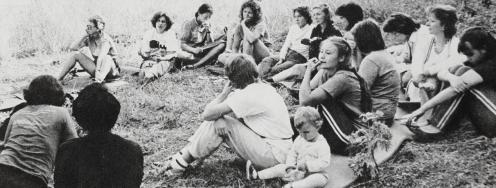U.S.-Russia Arms Control More Important During Times of Crisis
On the radar: Former generals on INF, New START; Russia to update military doctrine; Formula for an Iran deal; Optimism from Zarif; Sanctions enforced, reaction muted; Rouhani’s domestic calculus; and Survival editor responds to the firing of James Doyle.
On the radar: Former generals on INF, New START; Russia to update military doctrine; Formula for an Iran deal; Optimism from Zarif; Sanctions enforced, reaction muted; Rouhani’s domestic calculus; and Survival editor responds to the firing of James Doyle.
September 2, 2014 | Edited by Geoff Wilson, Jacob Marx and Benjamin Loehrke
Stability and transparency - The Obama administration has found that Russia has violated the INF treaty by testing its R-500 cruise missile multiple times since 2011. Counter to the calls of arms control skeptics, this should serve as a warning to strengthen, not withdraw from the treaty, write Lt. Gen. Dirk Jameson (USAF, ret.), Brig. Gen. J. Robert Barnes (USA, ret.) and Lt. Gen. John Castellaw (USMC, ret.) in The National Interest.
--“Because of growing U.S.-Russian tensions, bilateral arms-control agreements such as the INF and New START treaties are more important than ever. The stability and transparency that these agreements create can help de-escalate and diffuse more serious crises if they emerge. They also provide a secure line of communication between the U.S. and Russian militaries—a connection that will grow more important if the political lines of communication deteriorate.”
--“It will remain in the interest of the United States and Russia—and the international community at large—for Washington and Moscow to avoid allowing their deteriorating relations to disrupt cooperation on global nonproliferation and other international-security issues. It is with this objective in mind that the United States should consider and carefully calibrate its response to Russia's noncompliance with the INF Treaty to restore the integrity of treaties that are in the national-security interest of the United States.” Read the full story here. http://bit.ly/1qpS489
Doctrine update - “Russia will update its military doctrine this year to take account of new threats including the Ukraine crisis, a Kremlin security aide said on Tuesday in forceful comments that highlighted a deepening Cold War-style standoff with NATO...The doctrine was last updated in 2010, when Russia identified NATO enlargement as a national threat and reaffirmed its right to use nuclear weapons if its existence was endangered,” reports Mark Trevelyan for Reuters. http://reut.rs/1sWXaZ9
Tweet - @richtpau: Putin, warning the world not to "mess with us," cites his nuclear arsenal. http://reut.rs/1pEdwbz
Formula for a deal - “To achieve a win-win outcome [the P5+1 and Iran] must develop a creative, technically sound formula that increases the time it would take for Iran to enrich uranium to weapons grade while still providing Tehran with a modest program that allows domestic production of enriched uranium to contribute to fueling future civilian reactors and allows research and development to advance centrifuge technology,” write Kelsey Davenport and Daryl Kimball in a new brief.
--The Arms Control Association, in collaboration with the International Crisis Group, developed a proposal where “the P5+1 would put in place significant, verifiable, long-term constraints on Iran’s capacity to build nuclear weapons and be able to detect and deter any such effort before Tehran could do so. Iran would be able to ease the burden of nuclear-related sanctions and still be able to pursue a realistic civilian nuclear program. It is an example of the kind of ‘win-win formula that both sides should embrace”. Read the full report. (pdf) http://bit.ly/YYs6PZ
Tweet - @KelseyDav: Still no date on next round of #Iran nuclear talks, but Zarif said his meeting with Ashton was good, optimistic for a deal by Nov 24
Optimism from Zarif - After a meeting with European Union foreign policy chief Catherine Ashton on Monday, Iranian Foreign Minister Mohammad Javid Zarif voiced confidence that a nuclear deal remains within reach between Iran and P5+1.
--“I am quite optimistic after discussions with Lady Ashton that we can in fact resolve this issue in time," Zarif said, but cautioned that an agreement "requires political will, it requires full awareness of the need to address the issues rather than simply domestic constituencies.” Adrian Croft has the full story for Reuters. http://reut.rs/1qlskLj
Sanctions enforced - The U.S. on Friday penalized several companies and individuals for violating sanctions on Iran’s nuclear program and missile programs.
--“Companies affected included Iran's Asia Bank, Caspian Air, Meraj Air and Lissom Marine Services LLC, a shipping firm. In a parallel move, the State Department imposed sanctions on four firms it said were helping Iran's nuclear program, as well as Goldentex FZE, a UAE-based firm working with Iran's shipping sector, and an Italian firm, Dettin SpA, which it said was working with Iran's petrochemical industry,” reports Anna Yukhananov for Reuters. http://reut.rs/1rdVKLC
Iran’s reaction - The sanctions announcement won’t directly affect nuclear talks, President Rouhani told reporters on Friday. “They don’t damage the talks but they do damage trust. It would’ve been good if the Americans could have tried, with some better behavior, to improve this relationship for the future,” Rouhani said. Golnar Motevalli has the full story for Reuters. http://bloom.bg/1sWUVoF
Report - “Centrifuge Research and Development Limitations in Iran.” New brief from the Institute for Science and International Security. August 29, 2014. (pdf) http://bit.ly/W6jgh9
CTBT - “It's time to ratify the Comprehensive Nuclear Test Ban Treaty (CTBT),” writes William Lambers in the Huffington Post.” It's a bridge to nuclear disarmament that we must cross. If we don't, we are not going to make any further progress in this vital component of international peace.”
--The political, financial and environmental costs of nuclear testing are only increasing with time, as is the likelihood of a nuclear terrorist attack. “There really is a common interest among all nations to ban the bomb. A good place to start right now is getting the nuke test ban up and running,” Lambers writes. Read his op-ed here. http://huff.to/1nuGSns
James Doyle - Former Los Alamos National Lab employee James Doyle, “lost his job for writing an eloquent and detailed defence of the nuclear policies of Barack Obama, who happens to be the elected chief executive of the executive branch of government that first investigated and then fired him,” writes Dana Allin, Editor of Survival and the publisher of the article that got Doyle fired.
--“It is obvious that the real reason for Doyle being investigated and fired is not that he revealed secrets, but that he advocated nuclear disarmament. This constitutes a tragedy for Doyle, and a problem for the rest of us.” Read her full response to the James Doyle ordeal. http://bit.ly/1sWO7re
Quick hits:
--“The Iranian elite and the nuclear negotiations: My reflections from Iran” by Payam Mohseni for “Iran Matters” by Harvard’s Belfer Center. http://bit.ly/W6awYu
--“How North Korea may be using U.S. detainees as 'bargaining chips'” by Holly Yan, Will Ripley and Brian Todd for CNN. http://cnn.it/1nuz98W
--“A Hypersonic Arms Race” by Jeffrey Lewis and Aaron Stein for Arms Control Wonk. http://bit.ly/W5UhL7
Events:
--“Challenges to India’s Nuclear Doctrine” a discussion with Vijay Shankar, moderated by Huma Haque. Sept. 3 from 9:30-11:00am at The Atlantic Council. Details here. http://bit.ly/1w2MlqH
--President Obama attends the NATO summit in Wales. Sept. 4-5.
--“Iran Negotiations Update: Verification vs. Breakout Capacity” a discussion with Daryl Kimball and Stephen Rademaker, moderated by Barbara Slavin. Sept. 9 from 9:30-11:00am at The Atlantic Council. http://bit.ly/1ogX22L
--“Debate: U.S. No First Use,” Walt Slocombe and Jack Mendelsohn engage in a Project on Nuclear Issues debate. Sept. 10 from 6:00-8:00pm at CSIS. Details here. http://bit.ly/1kYCdhB
--“Nuclear Weapons Testing: History, Progress, Challenges” a Special Event to Mark International Day Against Nuclear Tests, with presentations from: Secretary of Energy Ernest Moniz, Under Secretary of State Rose Gottemoeller, NNSA Administrator Frank G. Klotz and Dr. Lassina Zerbo, Executive Secretary of the Preparatory Commission for the Comprehensive Nuclear-Test-Ban Treaty Organization. Sept. 15 from 12:30-5:00pm at the U.S. Institute of Peace. http://bit.ly/1lynIS4
--International Atomic Energy Agency Board of Governors meeting. Sept. 15-19 in Vienna.
Center for Strategic and International Studies Project on Nuclear Issues presents Ambassador Bonnie Jenkins, Department of State's Coordinator for Threat Reduction Programs in the Bureau of International Security and Nonproliferation. Sept. 16 from 12:00-1:30pm at CSIS. Details here. http://bit.ly/W6m7Xj
--“Iranian Attitudes on Nuclear Negotiations with the P5+1" featuring Ebrahim Mohseni and Steven Kull. Sept. 17 from 10:00-11:30am at the Carnegie Endowment. Details here. http://bit.ly/1tqCz3r



